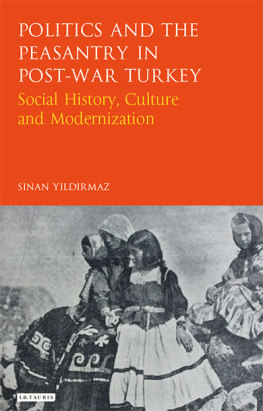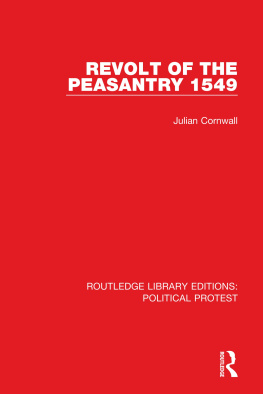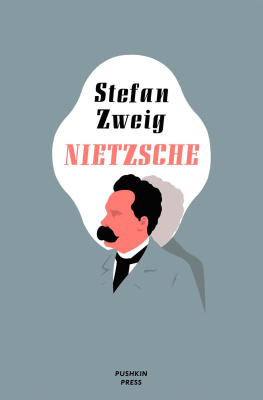Standard Book Number: 226-43524-5
Library of Congress Catalog Card Number: 79-92684
THE UNIVERSITY OF CHICAGO PRESS, CHICAGO 60637
THE UNIVERSITY OF CHICAGO PRESS, LTD., LONDON
1969 by The University of Chicago. All rights reserved. Published 1969
Printed in the United States of America
ISBN 978-0-226-43526-8 (e-book)
FOREWORD
The history of the Polish peasantry during the past one and a half centuries has been an unceasing climb along a tortuous road leading from serfdom to citizenship and from compulsory labor on manorial estates to ownership of land. To recreate the story of this weary passage of eight generations of millions of toilers of the Polish soil requires nothing less than a writer of epics. Happily, the task has fallen to the extraordinary talent of one of the great modern Polish historians, Professor Stefan Kieniewicz.
His work is the epic neither of a single hero nor of a small elitist group, but of the most numerous social class, the majority of the nation. The reader may well ask the simple, elementary question: to what extent is the history of the Polish peasantry the history of the Polish nation? The answer, which could be inferred from the following pages, is that the relation between the two is not one of identity but of relative congruence. During most of the period under consideration Poland did not exist as an independent state. The discontinuity of political independence, however, did not destroy the continuity of national existence, a fact supported by cultural continuity as well as by the frequent attempts at political resurrection. Professor Kieniewicz traces, with consummate skill, the changes in Polish society that gradually brought the Polish peasants into the mainstream of national life. The acquisition of national consciousness on the part of the Polish peasantry went hand in hand with the solution of their fundamental social problems. In part this is the story of how they came to think and act as Poles. It is no wonder, then, that the history of the Polish peasantry is treated by Professor Kieniewicz as distinct from the history of the nation, although most of the crucial issues of national history are reflected in the discussion, albeit primarily through the prism of attitudes of or toward the peasants.
It is difficult to classify the history of the peasantry as presented by Professor Kieniewicz exclusively in terms of professional historical classification. We are told by the author that it ought not to be categorized as a work of economic history, and in fact it is much broader in scope than an economic historians approach to the problem. It includes and combines in the best tradition of historical research and narration elements of economic history, intellectual history, and description and analysis of political and social institutions. One might say that the work represents social history par excellence, assuming that there were a significant measure of agreement among historians as to the subject and methods in that still amorphous field. In the absence of agreed criteria, it can only be suggested that many social historians might benefit greatly by following the example of Professor Kieniewicz and using his methods as a model for their work.
The reader might inquire with good reason why he ought to study the history of the Polish peasantry. Not every product of excellent scholarship can be read by the general public or studied even by the members of the profession. One would probably have to argue in favor of the Polish peasantry as a case study neither in terms of its uniqueness nor its typicality. The subject appeals to the general interest through a range of problems. In the period of serfdom the Polish pattern was very similar to the pattern prevailing in central and eastern Europe, particularly east of the Elbe River, and as such is helpful for our general understanding of a relatively late variety of serfdom. In the modern period the political awakening of the Polish peasantry and the growth of its educational, economic and organizational aspirations have a number of counterparts in eastern and southeastern Europe.
Professor Kieniewicz begins his narrative with an analysis of serfdom in independent Poland of the second half of the eighteenth century. He views as the central feature of the institution of serfdom the monopoly of land ownership in the hands of the gentry with most other characteristics of the institution deriving from this major social fact. Some economic historians tend to agree with him; others would offer alternative explanations, emphasizing perhaps more strongly the personal dependence of the serf or his outright ownership by his lord. A proponent of the latter view would consider the serf himself a form of capital, a much more valuable resource than the land during this period, and could therefore explain the choices available to the serf owner in terms of maximizing the returns from serf labor rather than from land use. But whatever may be the point of departure for the analysis of serfdom, Professor Kieniewicz has provided an extremely perceptive description and evaluation of the significance of the institution for the Polish peasantry. The author is also correct in pointing out that the various attempts of a voluntary or arbitrary nature to change some forms of the lord-peasant relationship during this period of enlightenment did not seriously undermine the institution of serfdom itself. Serfdom during this period was as compatible with money rent as with compulsory labor. The market was still too weak, new technology was lacking, and the peasantry were too politically ineffective to challenge seriously or to destroy the institution of serfdom. The emancipation of the serfsa late-eighteenth-century brainchild of the most radical wing of the Polish patriots striving to save the political independence of the countryremained in the realm of ideas, a heritage transmitted to the next generation, to use Professor Kieniewiczs apt phrase.
The process of emancipation of the serfs, which took place during the subsequent period, involved the solution of a number of issues. The main issues were the extent of the peasants claims (or the strength of the peasants right in the traditional rather than legal sense) to the land they tilled, personal freedom, and compulsory labor on the estates. Since the solution of the above issues depended upon the government rather than upon private transactions and contracts between lords and peasants, much depended upon the policies pursued by the partitioning powersRussia, Prussia, and Austria. Their attitudes in turn were shaped at least in part by the general policies that they followed in dealing with their own peasantry and gentry. The development of the market and money economy had an additional impact upon the settlement of the issues. Factors such as these determined whether the granting of personal freedom to the Polish peasants was preceded by the disappearance of compulsory labor on the landowners estates, or was enacted simultaneously, or was followed with a substantial time lag by the disappearance of compulsory labor.
The Polish peasantry as well as peasants in other parts of the world soon discovered that personal freedom alone was not a sufficient guarantee that they would be able to take advantage of their new status, especially when the bulk of the land remained in the hands of the landlords or when alternative opportunities to earn income were lacking. Personal freedom becomes meaningful only under conditions of free mobility and free competitionincluding competition for the services of the peasants. But in fact most of the land was apportioned to the landlords, and the attitude of the gentry remained fixed, and so the conditions imposed upon the freed peasants did not differ much from the conditions prevailing under serfdom.









